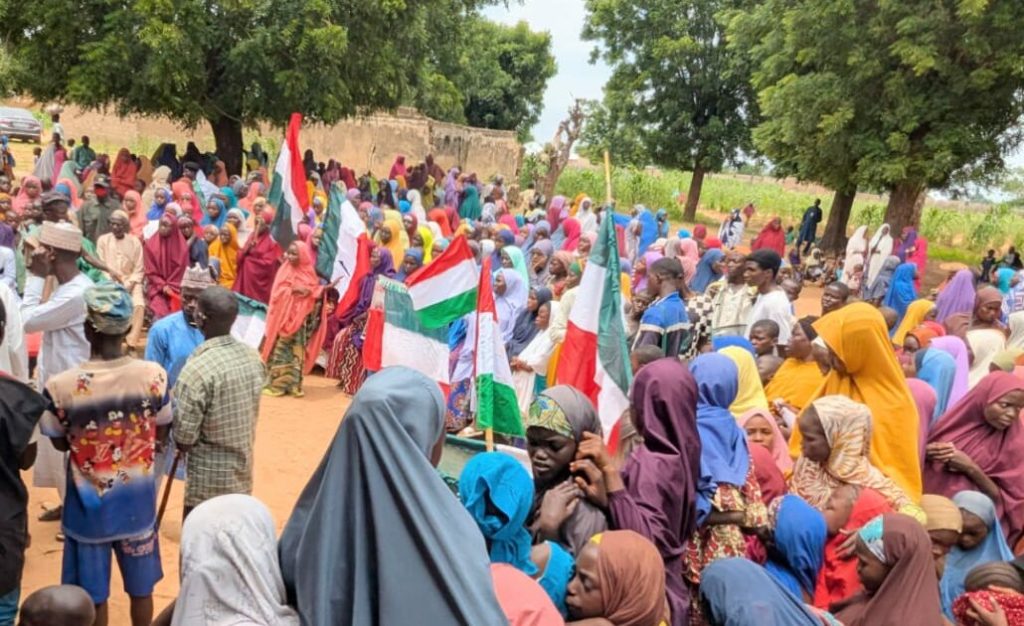A Seismic Political Shift: Mass Defection Rocks Jigawa’s Ruling Party
The political landscape of Jigawa State experienced a significant tremor on Friday as 289 members of the ruling All Progressives Congress (APC) abandoned ship and pledged allegiance to the People’s Democratic Party (PDP). This mass exodus, occurring in Sakwaya Ward, Dutse Local Government Area, sent shockwaves through the state’s political circles and underscored the growing influence of the PDP at the grassroots level. The defection ceremony, held at the PDP ward office, was attended by prominent opposition figures and party leaders, including the PDP’s deputy state chairman, Umar Danjani, who represented the state chairman. The scale of the defection, particularly the high number of women involved, signals a potential shift in the political dynamics of the region and raises questions about the APC’s ability to maintain its hold on power.
The defection event was not merely a symbolic gesture but a calculated move by the PDP to strengthen its base and prepare for the upcoming 2027 elections. Danjani, in his address, lauded the defectors for their decision and reaffirmed the PDP’s commitment to inclusivity and grassroots mobilization. He emphasized the party’s openness to new members and pledged to provide the necessary support for their seamless integration. Danjani’s words resonated with the spirit of unity and progress, portraying the PDP as a welcoming and dynamic force in Jigawa politics. His call for peaceful political engagement and adherence to democratic values further cemented the party’s image as a responsible and forward-thinking political entity.
Mamuda Sakwaya, a prominent PDP stalwart and ward leader, echoed Danjani’s sentiments, expressing his elation at the influx of new members. He described the event as a milestone for the PDP in Sakwaya and Jigawa State, highlighting the party’s growing influence at the ward and grassroots levels. Sakwaya’s words reflect the PDP’s strategic focus on building a strong foundation at the local level, recognizing the crucial role of grassroots support in achieving electoral success. His emphasis on the PDP’s commitment to addressing the needs of Jigawa citizens further reinforces the party’s position as a viable alternative to the ruling APC.
The driving force behind this mass defection was not solely political maneuvering but also a deep-seated disillusionment with the APC’s performance. Leading the charge was Mrs. Harira Sakwaya, the wife of the APC ward chairman, who expressed profound regret over her past political affiliation. Her disappointment with the APC’s leadership was palpable, and her words resonated with many other defectors who felt let down by the party’s inability to meet their expectations. Mrs. Sakwaya’s public denouncement of the APC, coupled with her praise for former Governor Sule Lamido’s contributions to Sakwaya, particularly for women, underscored the APC’s perceived failings and highlighted the PDP’s perceived strengths.
The composition of the defectors, with a significant majority being women (273 out of 289), adds another layer of complexity to the political equation. This demographic shift suggests that the APC’s policies and programs may not be resonating with a crucial segment of the population. The women’s decision to join the PDP could be attributed to a variety of factors, including unmet promises, perceived lack of opportunities, and a desire for a more responsive and representative government. The PDP’s ability to attract such a large number of women could significantly alter the political landscape and influence future election outcomes.
The mass defection in Sakwaya Ward is a clear indication of the changing political tides in Jigawa State. It represents a significant setback for the ruling APC and a major boost for the PDP. While the long-term implications of this political realignment remain to be seen, the event undoubtedly marks a turning point in the state’s political trajectory. The PDP’s ability to capitalize on this momentum and effectively integrate the new members will be crucial in determining its future success. The APC, on the other hand, faces the challenge of regaining the trust and support of its constituents, particularly women, to maintain its political relevance. The 2027 elections are still several years away, but the seeds of change have been sown, and the political landscape of Jigawa State is likely to undergo further transformations in the years to come.














